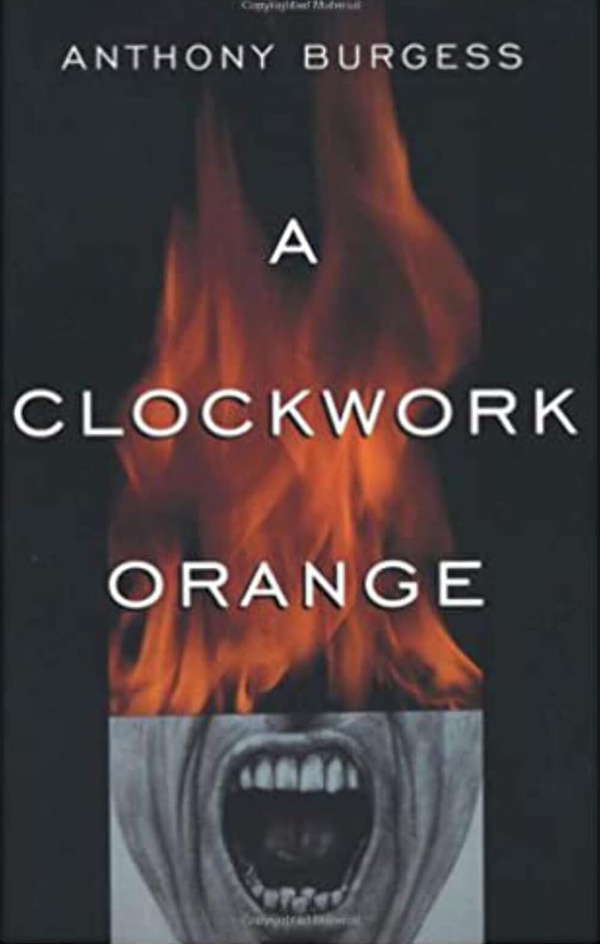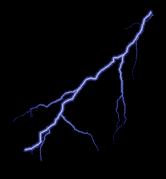A Clockwork Orange (Novel)
 |
 |
 |
 |
 |

- Publication Date: March 17, 1962
- Written by: Anthony Burgess
- Page count: 192
This was a book that I picked up out of sheer curiosity. I first saw the film adaptation of A Clockwork Orange way back in high school, and after I found a copy of the novel in my local bookstore, I decided to pick it up and give it a try. If you've seen the film, then you basically know exactly how the novel is going to pan out. The movie is nearly beat for beat the same plot, just with minor differences here and there. For anyone who hasn't experienced either version, it tells the story of a psychopathic teenager named Alex who likes to spend his time committing various acts of "ultraviolence" with his small gang of friends. After a robbery goes awry and Alex is arrested and convicted of murder, he is thrown in prison and subjected to an experimental medical technique that aims to reprogram his body to be repulsed by violence and sex. Many of the differences between the two versions are small, such as swapping out characters or changing motivations for events slightly. Aside from that, all of the plot beats and world oddities are consistent in both versions; including the dystopian near-future, the odd ways in which characters dress, the hallucinogenic milk bar, the extreme physical and sexual violence, and numerous other things.
The most famous thing about this book is the way in which it is written. If you've seen the film adaptation, then you will know that Alex speaks in an odd form of slang called "nadsat." This consists of various elements of English / Cockney slang, Russian words, onomatopoeia, and various words and phrases taken from other languages. While the movie used this form of speech for its characters' dialogue, the entire novel is written in it. This can seem intimidating on your first read, especially when you open the book and see paragraphs that look like this:
"So he did the strong-man on the devotchka, who was still creech creech creeching away in very horrorshow four-in-a-bar, locking her rookers from the back, while I ripped away at this and that and the other, the other going haw haw haw still, and real good horrorshow groodies they were that then exhibited their pink glazzies, O My brothers, while I untrussed and got ready for the plunge[...]"
While it does take some time to get used to, you will eventually get the hang of what words mean what. "Rookers" means hands, "devotchka" means woman, things like that. Context clues as to what word means what are very easy to pick up on, and after a chapter or two, this nonsense language actually begins to flow very well. Once you get an understanding of how Alex speaks, the book makes for a very quick read, and unfolds like a casual conversation with a deranged kid. He frequently addresses the readers as "My brothers" or himself as "your humble narrator", like this story is a yarn that he's spinning for some friends to brag about what he's done. Alex will describe the beating of an innocent old man the same way he would playing a joke with a friend, or the sexual assault of a woman in a completely detached and mechanical way. Every word out of his mouth feels sarcastic, uncaring, and biting; almost as if he's mocking the reader to try to do something about his horrible actions. Even when he is facing repercussions or experiencing distress, he can't be serious about what is going on, describing thing such as crying as "going boo hoo hoo." You never get the feeling that Alex has any attachment to the world, other than his love of music. To him, life is a box of toys that he can break any time he wants to. It's very easy to hate this character, but you can't help but be swept up in the ride of what happens to him.
One thing that I think this book did better than the film version is its ending. The original UK publication contained an extra chapter that was originally not included in the US release, but it's been reinserted in later printings. In this final chapter, Alex finally becomes bored with his ultraviolent ways, and starts to yearn for something more. He chooses to give up his life of crime and starts to look forward to a future where he settles down and has a family. It's reasonable to be skeptical that this could even happen with such a reprehensible character, but to me, this ending fits the themes of the book perfectly. The whole idea of a "clockwork orange" is to try to impose binary good or evil on a being that is fluid in life. No one is purely good or purely evil, and the ability to choose to give up evil and reform oneself is part of the beauty of life. After everything that Alex goes through in this book, I find this ending to be much more thought provoking than just keeping him a constant psychopath. The author's note in the beginning of the book is basically a rant on how the exclusion of this chapter initially turned his story of choice and morality into a glorification of violence, and I can completely see why he would think that. Cutting out Alex's ability to change his path removes the heart of the story itself and does a huge disservice to the author's intentions.
After finishing this book, I can honestly say that I prefer it over its film adaptation. While both are great ways to experience the story, the book's characterization of Alex and the expanded ending make for a read that is simultaneously engaging, repulsive, and thoughtful. Any fan of the movie should pick this up to get an understanding of why Anthony Burgess was so displeased with how it was adapted. Underneath the layers of violence and debauchery, there is a criminally overlooked moral message that makes the disturbing journey rewarding in the end.



